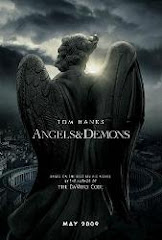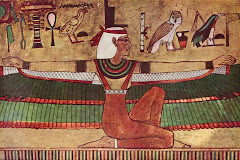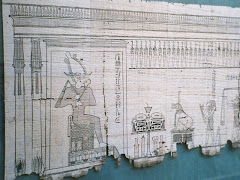You know how you tend to write things and you don't know what they're for? Then they pile up in your Documents folder and you don't know what's what anymore? I decided to open those long-forgotten and semi-forgotten nothings and post them--because I don't have anything to post anyway. Read: Life unworthy to delve into as of the moment.
----------Poem: Questions
(Part of the "Chronicles of Self-deprecation..." One of my more freestyle no rhyme scheme things. Written last year, I think.)
Why do we look and yet seldom see
through the infinite areas of possibility?
Why do we keep on day dreaming
but say that 'only seeing is believing'?
Why do we take things for granted
then repent when the chance has already departed?
Why do we have to keep on treading
upon shallow water and even footing?
Why are we so afraid to take
the risks we know we should make?
Why do we make things complicated
and make the pain we feel self-inflicted?
Why do we rationalize each waking moment
when all it brings is much more torment?
Why do we dwell on our insecurities
when we really have more capabilities?
Why do we say we want people to go away
when all we want is for them to stay?
Why do we scream 'leave me alone'
when the last thing we want is to be on our own?
Why do we let ourselves, of our accord, suffer,
and declare we want our lives to be over?
Why do we refuse to admit we were wrong
then in solitude sing the same sad sorry song?
Why is it so damn hard to forget
the things we really, really, really regret?
and...
Why am I still holding paper and pen,
writing instead of doing, all over again?
----------Conversation Excerpt
"What the hell?"
"Hell is a place, not an expression."
"Really...? What the hell?"
- 7th Heaven
----------Myths and Things
(I totally forgot I wrote this. Written last summer, I think. Source: Britannica Encyclopedia.)
"Other Mesopotamian myths include the story of Atrahasis, a wise man who was saved from the Flood after being warned by one of the gods to build a ship to save himself."
- Familiar... I wonder whether or not that's where they got it...
"The myth of Ishtar's Descent and return from the underworld was evidently connected to the cycle of fertility."
- I know someone else who did that...
"Askr and Embla. In Norse mythology, the first man and first woman, respectively, parents of the human race. They were created from tree trunks found on the seashore by three gods—Odin and his two brothers, Vili and Ve (some sources name the gods Odin, Hoenir, and Lodur). From each creator Askr and Embla received a gift: Odin gave them breath, or life, Vili gave them understanding, and Ve gave them their senses and outward appearance."
- I'm curious. Does every religion in the world have their version of how the world was made?
- And I wonder why... Wait. I should stop now. Before I say something about. Well, that. Which I'm probably going to sooner or later.
- AND why are the old religions called myths now? Can I call Protestantism the Protestant Myth? I'm going to stop calling "myths" as myths. It's just so biased.
THE PROBLEM OF EVIL
"a theological problem that arises for any philosophical or religiousview that affirms the following three propositions: (1) God is almighty, (2) God is perfectly good, and (3) evil exists. If evil exists, it seems either that God wants to obliterate evil and is not able to—and thus his almightiness is denied—or that God is able to obliterate evil but does not want to—and thus his goodness is denied."
- Wow. That makes sense. Heavy theo question. There was someone who said, "Wait, it's not that simple!" Which is probably why this next paragraph was made:
"The theological problem of evil can be solved logically by denying any one of these three propositions. Vedanta Hinduism, Christian Science, and Stoicism have sought to solve the problem by denying the existence of evil. They affirm that evil is mere appearance or is imaginary. The U.S. philosopher William James attempted to solve the problem by denying the almightiness of God. He regarded God as having great but limited power and as being perfectly good. Orthodox Christianity, however,has generally chosen to live with the tension involved in affirming all three propositions. Some, instead of denying the proposition that God is almighty, have defined the proposition to mean that God can do anything that is logically possible. The 17th-century German philosopher Gottfried Wilhelm Leibniz, for example, stated that, because God is limited to that which is logically possible, the existence of evil is necessary in this “best of all possible worlds.”
- Hey! You can't say Christian Science dudes. That just ain't right. Look it up. "Religion” has nothing to do with facts and figures (science). But we all know that anyway. Christian Science?! Can't we stick with Christianism? Sheesh.
- So Orthodox Christianity has chosen not to answer this? Hmm. Interesting.
- Riiiight...Evil is mere appearance... So what happened with the balance of good and evil...? Something real can't be balanced with something unreal... Literally. Figuratively. Whatever. Yin Yang. I know there are different terms anyway.
- Why'd William James deny the almightiness of God? Ain't that kind of the point here?
- Can anybody solve this? Talk to me. Please.
----------Animal Facts
(Lobsters, Dogs and Cats. I must have been bored.)
*Lobsters were considered the food for poor people before it became one of the most expensive edible crustaceans. (The poor people I’m referring to are the ones who lived near the lobster harvest area. Their kids used to be laughed at when they brought lobster to school.) – Some show on Lifestyle Network
*The difference between a male and female lobster is that the female has hairy sort of antennae on the underbelly and males have shell-like ones. – Iron Chef America
*Cats and dogs share ancestors called miacoids, weasel-like creatures that roamed the earth more than 50 million years ago. That’s why cats and dogs share certain characteristics like padded-feet and flesh-eating teeth. It wasn’t until three million years ago that the cats of today established themselves. – Amy Shojai, Complete Kitten Care
----------Anamnesis
(I wrote this out of drama. Later I submitted it as a yearbook prologue, and tweaked the last two lines to make it look like one. Written last school year.)
The curtains are coming down on yet another play,
Another plot has unraveled through the year's every day.
The days passed by fast, and are passing faster, it seems,
A future on the not-so-distant horizon gleams.
Now we are standing at a threshold, we are at a sojourn;
Though this is transience there is nothing to mourn;
This is not the end of the road; this is not the conclusion,
This is the beginning of yet another expedition...
But we will not ride Galleons; we will not carry blades--
We are not conquistadors of antediluvian escapades.
Magellan, Columbus, Pizarro-- they faced rough seas;
We, the graduates, are facing fiery, harsh realities.
We do not face seasickness or pirates that swagger,
We face travails and a different sort of danger.
Dangers of intellect and, one might argue, of the heart,
Dangers of the choices within this new start.
But the future is not dreary, au contraire, it is bright;
Tarnished only by the inner fear and fright.
The future will not always be what we want it to be,
But it is a choice, one we must make undauntedly.
We like to think of the future as a distant event,
An event where the results of our dreams are evident...
But the future is not limited to the far years and after,
The future begins with the present-- the rest of forever.
Wherever we're going from where we are today,
Is a part of our long and winding yesterday.
The laughter, the tears, the joy and the pain,
In our hearts, minds and souls they'll always remain:
The days we spent studying, learning, and/or cramming,
The times we hung out and spent daydreaming,
The pictures we took and the lessons we learned,
The friends we made and the grades we earned;
The mistakes we committed and the fights we got into,
The songs we sung and the days we breezed through;
The games we played and the books we read,
The things we did and the words we never said;
The pain we kept in and the silent screams,
The joyous days and the fulfilled dreams;
The thoughts and deeds we’ve reaped and sown,
The frolic with l’inconnu, the unknown;
The sleepless nights and the really tiring days,
The occasional, uninhibited, audacious forays;
The hindrances, the problems, the inhibitions,
The customary quintessential predilections;
The interests we had, the places we’ve been to,
The things we did and the people we knew;
The way we lived through every single minute,
The ardent anamnesis that is truly infinite.
Now here is a look at the years we had, our very own legacy,
An anthology of memories that will transcend infinity.
:-)














No comments:
Post a Comment